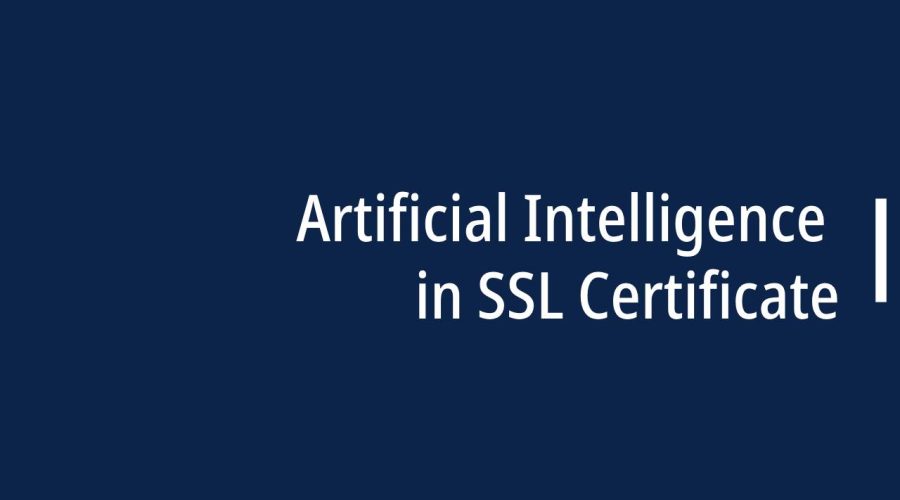In an era where data privacy and security have become paramount, the amalgamation of SSL certificates and Artificial Intelligence (AI) stands at the forefront of fortifying digital security. SSL certificates, the bedrock of secure online communication, and AI, the catalyst for identifying and responding to evolving threats, combine to create a dynamic and unyielding shield against cyber vulnerabilities. This comprehensive exploration delves into the convergence of SSL certificates and AI, unraveling their roles, interplay, and the future of digital security.
SSL Certificates: Guardians of Secure Communications
SSL certificates are cryptographic protocols designed to secure data transmission over networks. Their primary functions include:
- Data Encryption: SSL certificates encrypt data in transit, rendering it unintelligible to potential eavesdroppers. This safeguards sensitive information such as login credentials, financial data, and personal information from unauthorized access.
- Authentication: SSL certificates validate the identity of web servers, ensuring users connect to legitimate and trustworthy websites. Visitors can trust that their data is being transmitted to the intended recipient.
- Data Integrity: SSL certificates guarantee the integrity of data exchanged between the server and the client. They detect and prevent tampering, protecting against data manipulation during transit.
AI’s Role in Fortifying Security
Artificial Intelligence, particularly machine learning, has emerged as a pivotal tool in modern security strategies. AI’s contributions to digital security include:
- Threat Detection: AI can analyze network traffic patterns, identifying deviations that may signify malicious activities. It excels at identifying threats like Distributed Denial of Service (DDoS) attacks and can respond swiftly to mitigate risks.
- Behavioral Analysis: AI algorithms examine user behavior to establish normal activity baselines. Any deviations, such as unusual login attempts or changes in user behavior, trigger alerts and protective actions.
- Security Automation: AI automates security processes, including SSL certificate management. It monitors certificate expiration dates, initiates renewals, and manages the entire certificate lifecycle. This minimizes the risks associated with expired certificates.
- User Authentication: AI enhances user authentication through multi-factor authentication (MFA) and adaptive authentication. This approach strengthens security beyond the capabilities of SSL certificates alone.
- SSL Inspection: SSL inspection is the decryption and inspection of SSL-encrypted traffic. AI assists in efficiently decrypting and analyzing SSL traffic, ensuring security without compromising privacy.
The Synergy of SSL Certificates and AI
The integration of SSL certificates and AI provides a holistic security approach, where the strengths of one complement the other:
- Threat Intelligence: AI augments SSL certificates with threat intelligence. It leverages historical data and real-time monitoring to detect emerging threats, fortifying encryption mechanisms.
- Adaptive Security: SSL certificates, when coupled with AI, enable adaptive security measures. This dynamic approach adjusts security protocols based on the ever-evolving threat landscape, ensuring proactive protection.
- Real-Time Threat Response: AI can provide real-time threat detection and response, enabling organizations to identify and mitigate security risks as they emerge.
- Quantum-Safe Encryption: AI aids in the development and deployment of quantum-safe encryption, a critical step in safeguarding SSL-encrypted data against future quantum computing threats.
- Enhanced User Experience: AI-driven security streamlines the user experience. By simplifying and reinforcing the authentication process, it makes secure interactions more convenient for users.
The Future of AI and SSL Certificates in Digital Security
The collaboration between SSL certificates and AI will be instrumental in the future of digital security:
- Quantum-Resistant Encryption: AI will assist in the transition to quantum-resistant encryption methods, safeguarding SSL-encrypted data against quantum computing threats.
- Innovative Threat Detection: AI’s threat detection capabilities will continue to evolve, enabling real-time response to emerging vulnerabilities and attacks.
- Dynamic Authentication: Adaptive and user-friendly authentication methods will become standard, enhancing security without compromising user experience.
- Continual Evolution: The marriage of SSL certificates and AI embodies a continually evolving security landscape, where adaptability and innovation are key to staying ahead of cyber threats.
Conclusion
The symbiotic relationship between SSL certificates and Artificial Intelligence stands as a testament to the ever-evolving field of digital security. SSL certificates, with their encryption and authentication prowess, and AI, with its threat detection and adaptive security mechanisms, create a dynamic defense against cyber vulnerabilities. As the digital landscape continues to shift, this synergy will play an integral role in securing the future of online communications and data protection. The pursuit of unbreakable encryption, powered by SSL certificates and fortified by AI, remains the enduring goal in our increasingly interconnected digital world.

Gloria Bradford is a renowned expert in the field of encryption, widely recognized for her pioneering work in safeguarding digital information and communication. With a career spanning over two decades, she has played a pivotal role in shaping the landscape of cybersecurity and data protection.
Throughout her illustrious career, Gloria has occupied key roles in both private industry and government agencies. Her expertise has been instrumental in developing state-of-the-art encryption and code signing technologies that have fortified digital fortresses against the relentless tide of cyber threats.
